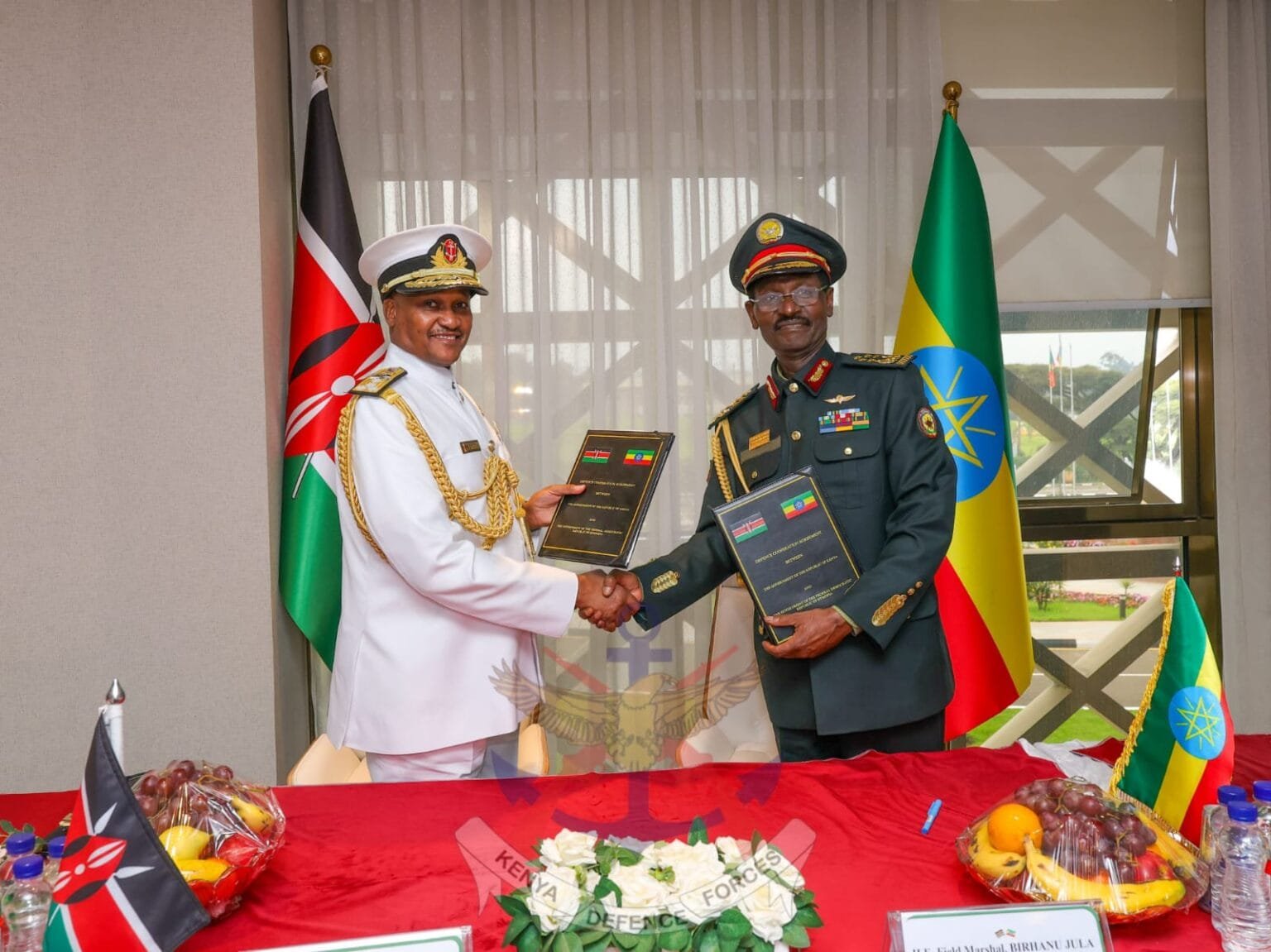Ethiopia and Kenya have formalised a new Defence Cooperation Agreement (DCA), marking only the second such pact in over sixty years since Kenya gained independence in 1963. The agreement was signed in Addis Ababa by Field Marshal Birhanu Jula, Chief of General Staff of the Ethiopian Armed Forces, and General Charles Muriu Kahariri, Kenya’s Chief of Defence Forces.
The DCA lays out a wide array of commitments. Among them are enhanced intelligence sharing to allow prompt communication about emerging security threats, joint military exercises, defence training, counter-terrorism operations, border security, and co-development of defence industry capacities. The two governments say the agreement also emphasises interoperability between their forces and establishing mechanisms for faster response to shared threats.
Officials from both sides stressed that this is more than a routine security pact: it reflects a growing level of mutual trust, deepening defence ties and recognition that many current threats are cross-border and regional. Field Marshal Birhanu said the agreement builds on a historic relationship and is designed to produce positive spillovers for peace and stability across Horn of Africa. General Kahariri of Kenya described the pact as part of a push toward “African solutions for African challenges,” underscoring cooperation, shared action, and building resilient defence capability.
This comes at a time when Ethiopia and Kenya have already been collaborating on border security, counter-terrorism, and operations to counter trafficking of arms, drugs, humans, and contraband. Analysts see the new agreement as likely to strengthen operational coordination, reduce response times to threats, improve sharing of actionable intelligence, and potentially enhance the effectiveness of joint security operations in areas of porous borders.





